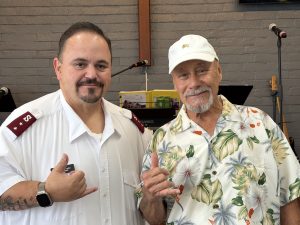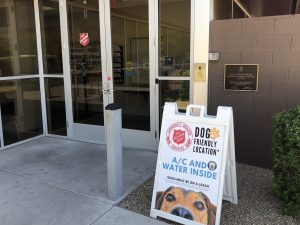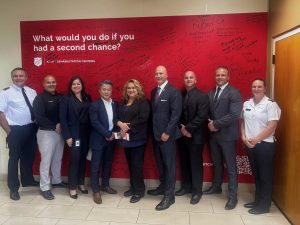Army partners with ECHO and joins the board of Sphere Project.
The Salvation Army recently signed a five-year partnership agreement with the European Commission Humanitarian Aid Organization (ECHO) to strengthen humanitarian responses in times of crisis. In addition, the Army has become a member of the board of the Sphere Project, a group that seeks to raise standards in emergency response.
ECHO
Commissioner Don Odegaard, international secretary for program resources, and Major Cedric Hills, international emergency services coordinator, attended ECHO’s Annual Partners’ Conference in Brussels, Belgium. Odegaard, who signed the agreement on behalf on the Army, said: “It is an honor that ECHO has invited The Salvation Army to become a partner….The signing of the agreement marks the start of a new relationship and is an indication that our emergency services ministry has been vetted by ECHO as professional and appropriate. We look forward to working with the European Union for the benefit of those impacted by disaster.”
The European Union—through ECHO—is one of the world’s main humanitarian aid donors. Through ECHO funding, some 18 million people are helped each year in more than 60 countries through 200 partners (non-governmental agencies, the Red Cross, and UN agencies like the UNHCR and the World Food Program).
Relations between ECHO and its partners are governed by Framework Partnership Agreements that define roles and responsibilities in the implementation of humanitarian operations financed by the European Community.
Hills explained that the partnership is the result of years of research and planning with Salvation Army leaders in the Netherlands. He stated: “Resourcing our emergency operations worldwide is a huge challenge. The partnership opens new possibilities for us to support territories at times of disaster.”
The Sphere Project
Sphere—launched in 1997 by a group of humanitarian non-governmental organizations (NGOs) and the Red Cross and Red Crescent movement—is based on two core beliefs: first, that all possible steps should be taken to alleviate human suffering arising out of calamity and conflict; and second, that those affected by disaster have a right to life with dignity and therefore a right to assistance.
It backs up these beliefs with a handbook (viewable online at www.sphereproject.org/handbook), a broad process of collaboration and an expression of commitment to quality and accountability.
Captain Elizabeth Hayward (international emergency services training officer and the Army’s Sphere representative), said, “For almost five years the principles enshrined within Sphere’s humanitarian charter and its minimum standards have formed the basis for Salvation Army emergency training programs around the world. As an organization we stand alongside other NGOs and UN agencies in attempts to raise standards in emergency response. The invitation to become board members is recognition of the work we are doing to promote awareness and improve our response programs.”
Thousands of individuals from more than 400 organizations representing 80 countries have participated in various aspects of the Sphere Project, from developing the handbook through to training. The Sphere process has endeavored to be inclusive, transparent and globally representative.
Ødegaard stated, “We are honored to accept this invitation and play our part in promoting Sphere. Many other well-known organizations are board members and the interaction with these other agencies will not only allow us to input into future developments of Sphere but lessons learned will also benefit our own humanitarian ministry.”
The Sphere Project is based in Geneva, Switzerland, but the board structure reflects the internationalism of its influence. The next board meeting takes place in Washington D.C., in May 2008.
From Salvation Army international news releases.











